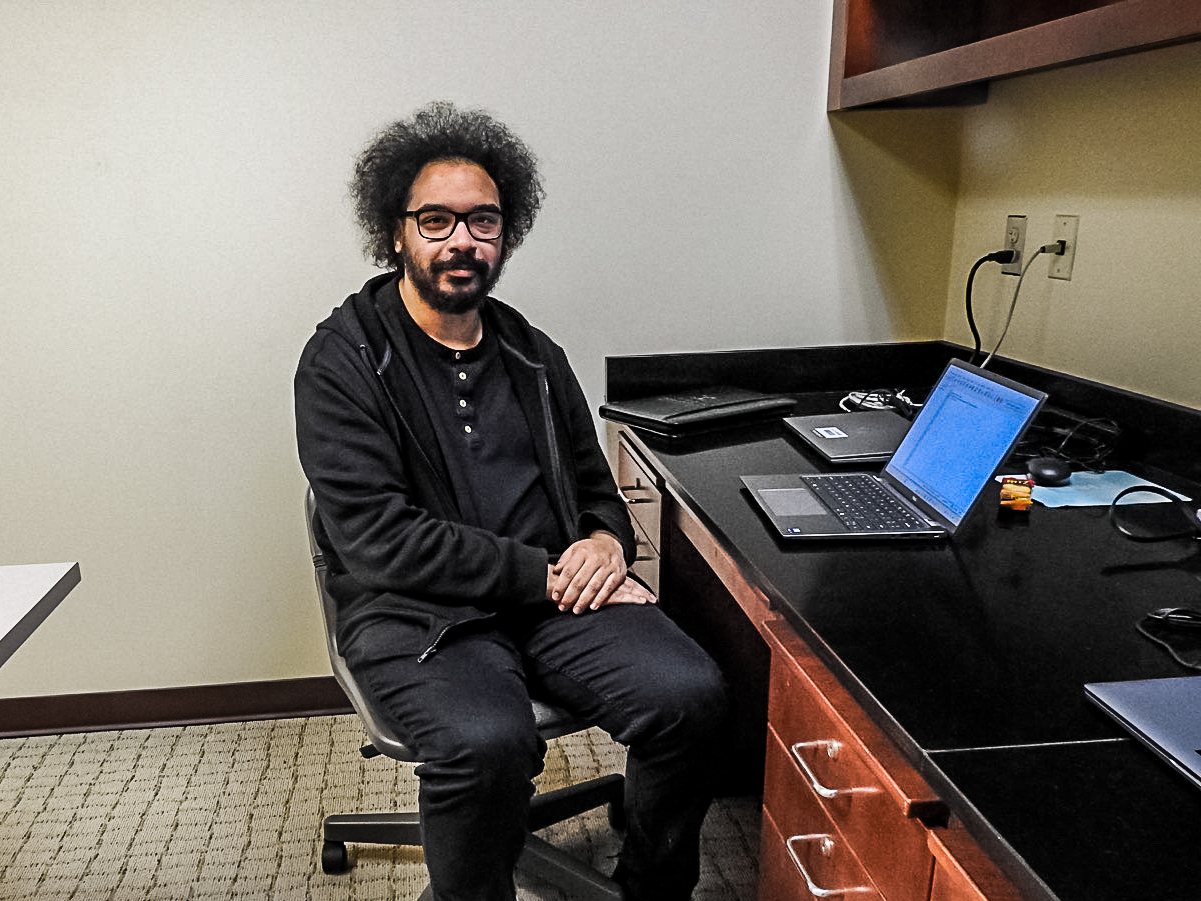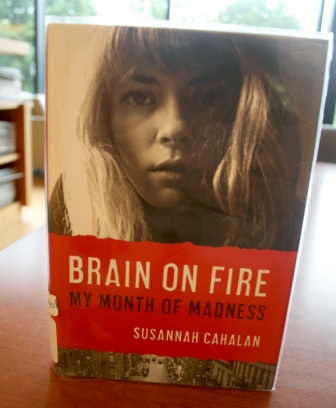Photo by Sabrina Mastronardo ‘15 | Arts Editor
Strange, unidentifiable diseases, featured on TV shows like Extreme Medical Mysteries document illnesses that are seemingly impossible for the average person to contract. Nevertheless, they are real, and in 2009, twenty-four year old Susannah Cahalan experienced a nightmarish episode of House when her normal life became a medical mystery drama. In her memoir, Brain on Fire: My Month of Madness, Cahalan documents an unbelievable reality: how she nearly loses her identity after contracting an unexplainable, brain-annihilating disease.
The book begins with Susannah Cahalan waking up attached to wires and restricted to a straightjacket, struggling to remember why she was in New York University’s Langone Medical Center. Just months earlier, she was a happy woman, reporting for the New York Post and enjoying her new found independence. A series of abnormal symptoms – crying spells, paranoia, seizures – initiates Cahalan’s medical journey, as an unknown disease quickly removes the traces of her old self. Cahalan is suddenly labeled psychotic, mad, schizophrenic, and an alcoholic. Unable to identify what is wrong, most doctors fail to help and misdiagnose her wild behavior as mental. That is, until Cahalan’s real-life Dr. House, Dr. Najjar, comes through and delivers her from a mutating and potentially fatal disease called NMDA-receptor autoimmune encephalitis.
Since recovered, Cahalan cannot remember some of the traumatic experiences that her illness triggered. She consults family, friends, doctors, nurses, hospital video tapes, and journals to track her decline and how the disease transformed her. As a result, Brain on Fire became a recollection of how it feels to undergo a terrifying, unknown disease – and survive.
The book is much more of a gripping account than a doctor’s medical jargon on the disease itself. Cahalan describes her odd behaviors so intensely and personally that you feel her symptoms, too. Getting inside her head to understand a maddening brain is where the book is strongest and most emotionally compelling. Being able to understand her thoughts and feelings while she undergoes a medical nightmare is unique, and sets her apart from other medical pieces that only touch on personal experience.
Also compelling is Cahalan’s inside view on the medical profession, as she outlines the traits that makes a doctor both successful and trustworthy. While psychology and medical practices tend to be two separate entities, Cahalan stresses the importance of meshing both fields. In many cases, psychological symptoms are a result of a physical illness, which psychological treatment cannot cure. This view of the medical world has been brought up in recent debate, and takes a staunch position in her memoir.
The overall writing is good – not great, as the beginning of Brain on Fire feels strained, almost like Cahalan tries too hard in the opening chapters to make the story seem interesting. The slow beginning is the only rocky part; too many adjectives and unconnected details fill up a few pages that tempt the reader to start skimming. However, the majority of her writing style is good enough to keep one invested. Perhaps it is the unbelievable story, though, that is most captivating, and the primary reason you should check out this book.




































































































